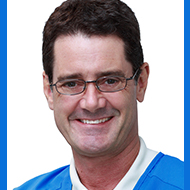
New guidance aims to bring about positive change in the workplace.
New guidelines outlining how veterinary professionals should conduct themselves among their peers have been published by the Federation of European Companion Animal Veterinary Associations (FECAVA) and the World Small Animal Veterinary Association (WSAVA).
Launched on Blue Monday (18 January) - dubbed the most depressing day of the year - the guidance outlines ten principles of professional collegiality that aim to encourage a more productive and welcoming work environment.
The move follows discussions at the WSAVA World Congress in July 2019, during which veterinary leaders from across the globe raised concern about the stress caused by miscommunication and collegiality within veterinary teams. Leaders also highlighted the additional pressure that this was putting on members of a profession already challenged by well-being and mental health issues.
FECAVA senior vice president Dr Wolfgang Dohne commented: “Poor collegiality and communication add to stress and frustration among veterinary professionals and hold back veterinary teams.
"Mutual respect, courtesy and support of especially junior team members, together with good communication, results not only in a better working environment but also in better clinical outcomes. It improves animal welfare and encourages the concept of life-long learning. These goals are at the heart of FECAVA and its national member organizations and we are proud to be co-signatories of this document.'”
WSAVA past president Dr Shane Ryan added: “The mental and emotional well-being of the entire veterinary team and, consequently, our ability to ensure the health and welfare of our animal patients, can only be enhanced by practising in a harmonious, collegial environment.
"The principles outlined in the document allow for courteous and respectful interaction with our fellow veterinarians to encourage a more productive and welcoming workplace. Strengthening collegiality is an important element of the WSAVA's strategy to advocate for the profession globally to bring about positive change.”
An accompanying infographic for practical use in veterinary clinics will be unveiled at the WSAVA/FECAVA Online Congress in March 2021.



 The Veterinary Medicines Directorate (VMD) is inviting applications from veterinary students to attend a one-week extramural studies (EMS) placement in July 2026.
The Veterinary Medicines Directorate (VMD) is inviting applications from veterinary students to attend a one-week extramural studies (EMS) placement in July 2026.